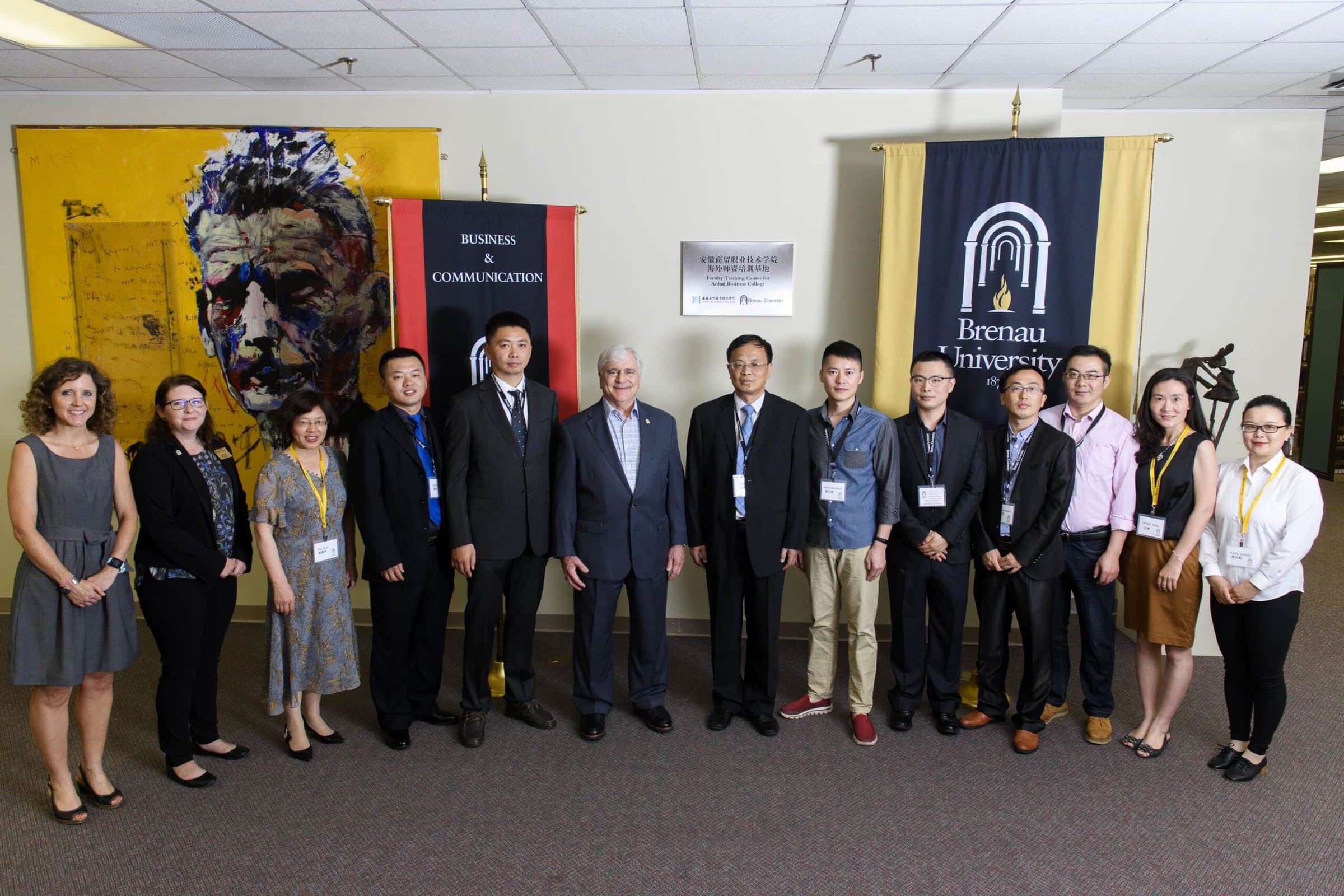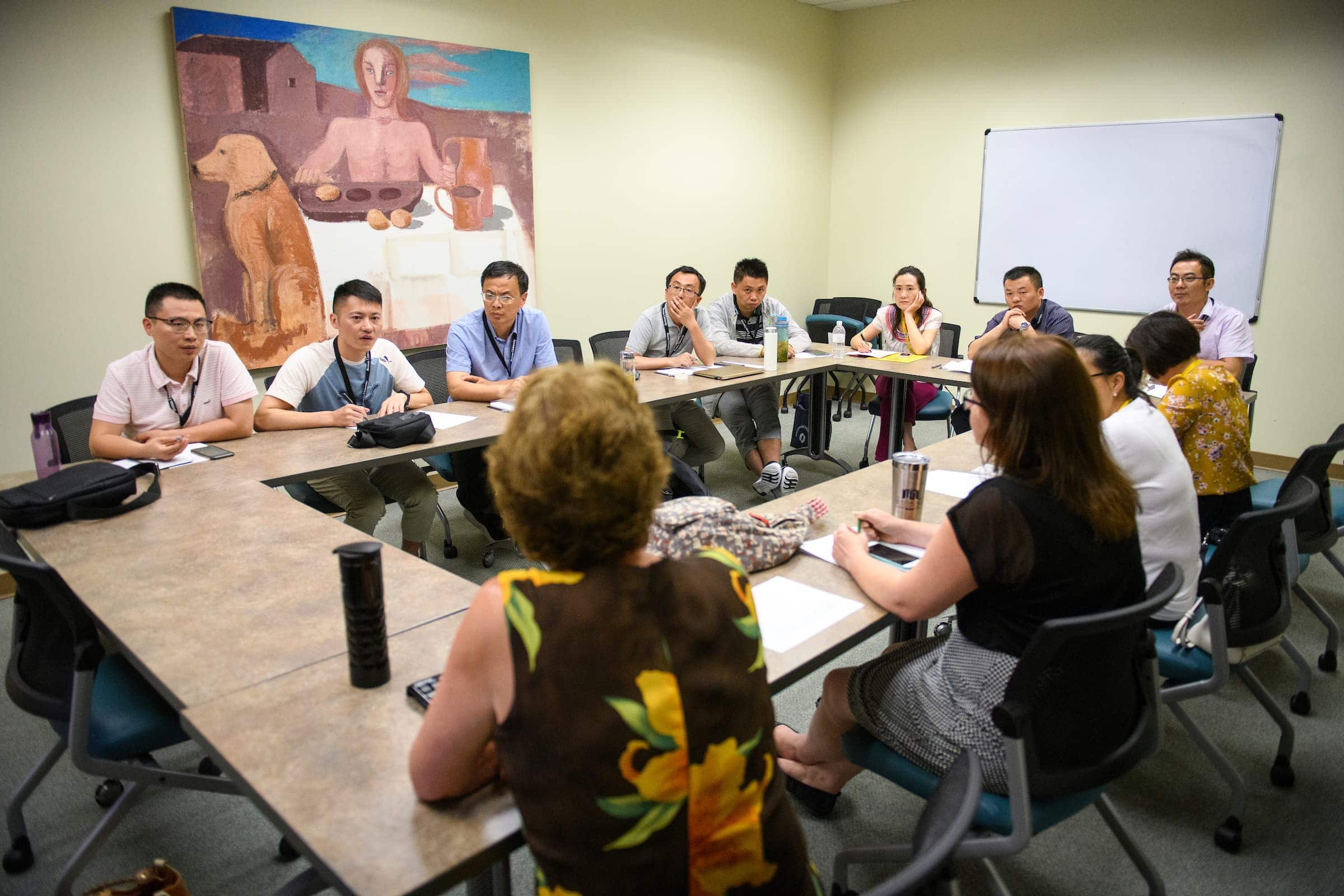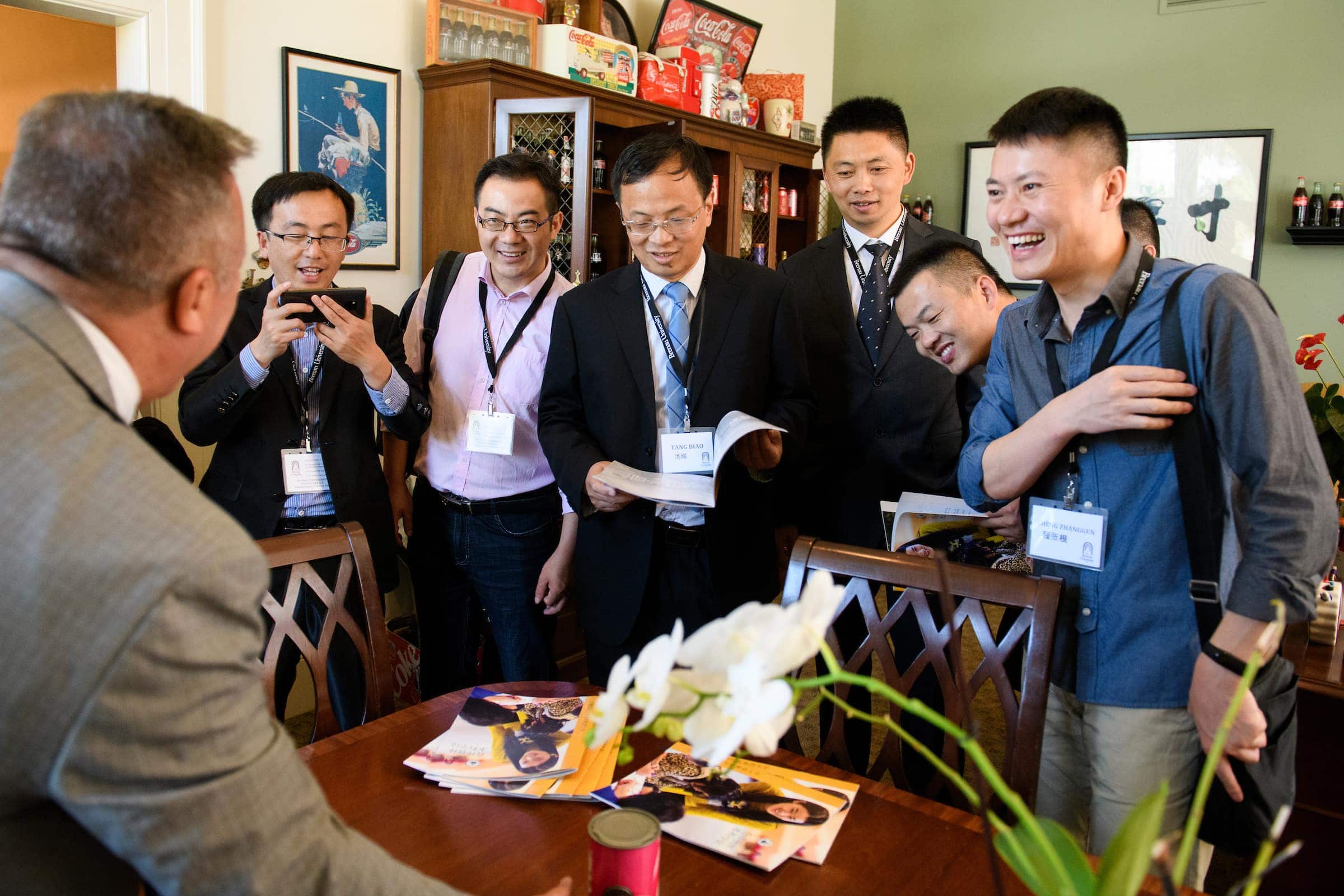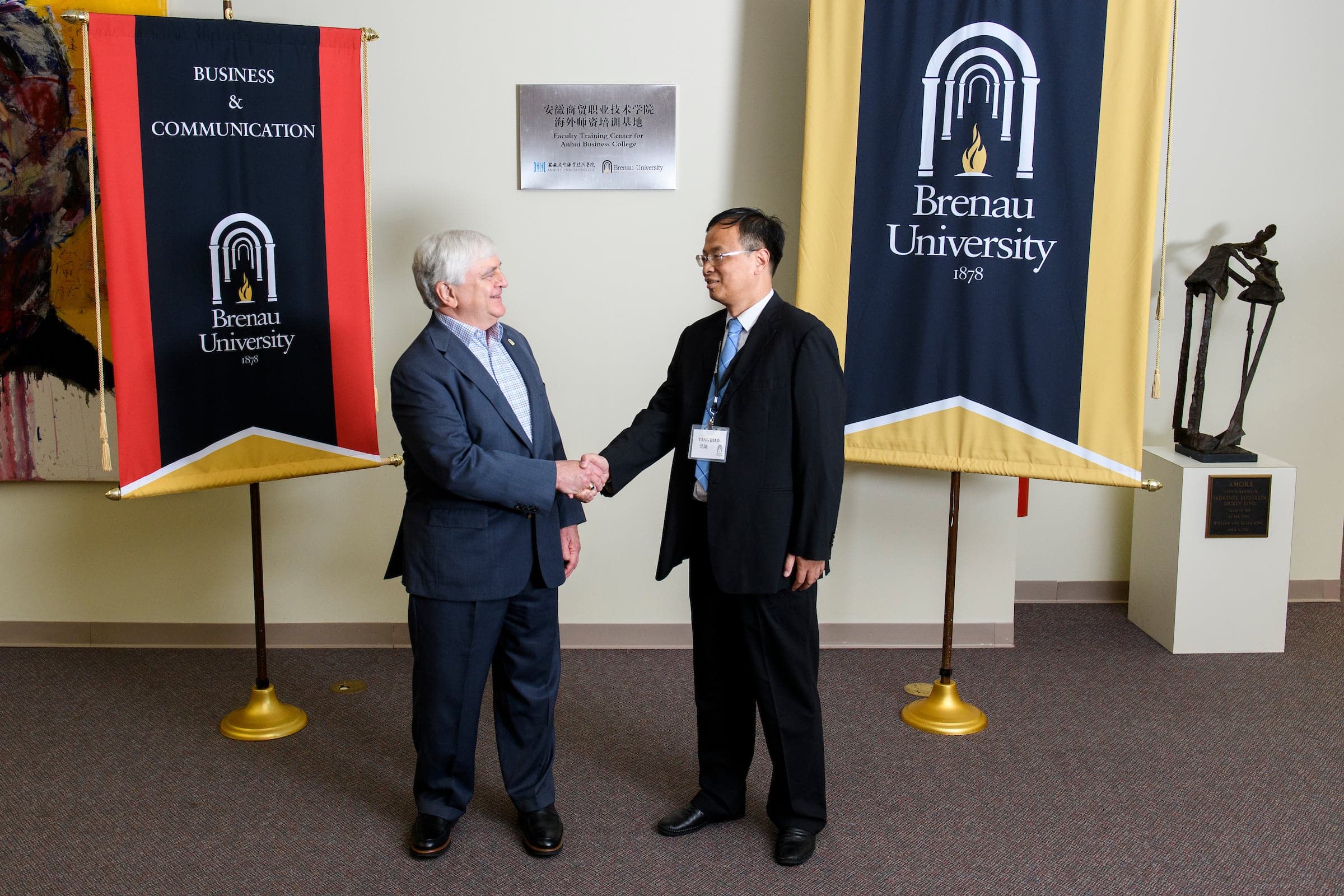
Brenau University hosted 10 delegates from Anhui Business College in Wuhu, China, for two weeks at the end of June, at which time they completed the Brenau University International Education Seminar for Business Educators.
The delegates were led by Tang Biao from the Office of Publicity. He was joined by Wang Tang, accounting professor; Cheng “Andy” Zhanggen, business English director; Duan Wenzhong, economics professor; Tang Wenju, economics professor; Xia Juzi, financial management director; Song Lin, business administration director; Cao Yumin, accounting professor; Wu Jinghong, business administration professor; and Li Gang, financial management professor.
The two-week intensive training seminar focuses on providing an overview of American higher education and included sessions led by administration, deans and faculty who covered topics such as organization and governance, liberal arts education, teaching roles, styles and methods, out-of-classroom learning and others. The group also visited Lanier Technical College and the Brenau University Business Incubator, toured the Northeast Georgia History Center and Brenau’s Norcross campus, participated in a panel discussion with faculty and administration, and more.
“I’m thrilled our colleagues from Anhui Business College visited and that we were able to provide them with ideas and resources they can implement in their own classes,” said Emily Zank, assistant vice president for academic affairs. “Our international students enrich the university community, and oftentimes I think we learn just as much from them as they learn from us.”
One of the sessions led by Academic Affairs covered organization and governance in higher education. The delegates learned how universities are run and ranked in America and the differences and similarities between education in China and the United States. Ultimately, discussion proved that both American and Chinese educators prioritize students.
“We attach great importance to students’ knowledge,” Zhanggen said. “We try to expand their knowledge in a systematic way.”
The Anhui Business College faculty were especially interested in the dynamic between American faculty and their students, commenting that Brenau faculty are collaborative and encourage students to ask questions. Universities like Brenau offer students an opportunity to speak more with professors and classmates due to smaller class sizes. The same is less common in China, a country of about 1.4 billion people where class sizes can reach 50-60 students, which rivals some of the larger public universities in the United States.
“In China, we offer higher education to a very large population with limited resources,” Gang said.
Brenau President Emeritus Ed Schrader has spent a great deal of time in China and noted that the country’s organization in higher education is one of its strong suits.
“I think China and the U.S. have had somewhat diverging approaches to education because the U.S. has had the luxury of small classes,” Schrader said. “So the teacher has more personal time to spend with the individual student and the class has more time for creative ideas to be discussed. In many Chinese classrooms, it’s challenging to cover all the material and then answer questions or have discussions because there are so many people in class. I believe that Chinese education has developed to be the best system for teaching information so that students remember and recall the specifics.”
Students in the United States are usually able to schedule their classes around their personal schedules, but Chinese students don’t have that option. American higher education advisors help students with picking classes and other out-of-class professional experiences, such as internships, while Chinese advisors may be responsible for as many as 200 students and help with social activities such as clubs and ensuring students use their required self-study time wisely.
Wenju said she believes it is good for Chinese students to study in the United States.
“I think it is very useful to expand one’s horizons,” she said. “It’s a good chance to know a different culture and customs. You have to get out and have relationships with different countries. It’s good to study abroad and a chance to learn another language. It’s very important to learn English well.”
Many of the delegates said they were interested in sending their children to the United States after high school.
“I have a plan to send my son and daughter here one day to study in the United States,” Zhanggen said. “I think that’s what all of the Chinese people are thinking about if they have enough money to finance their children’s education. The people in China believe that the higher education in the United States is much more diverse and beneficial to the development of their children.”
Brenau has a strong relationship with Anhui Normal University, also in Wuhu, China. In the past two years, 42 students have graduated and received diplomas from both universities in the 2+2 program. Students study at their home university for two years and come to Brenau for the next two, graduating with degrees from both institutions. Brenau signed a 3+2 deal with Anhui Business College in 2017.
“I always tell students in our Chinese partner schools that they have the chance to experience the two best educational systems in the world if they go to China and they go to America,” Schrader said.
















